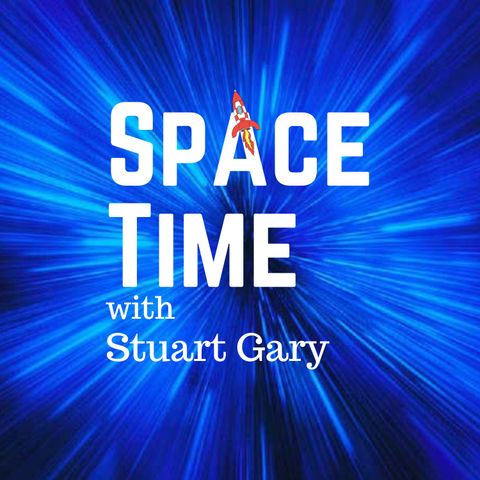
Support the Podcast
Contacts
Info
19 years on Australian Public Radio (as StarStuff), 8 years of podcasting and counting. We have a lot of content to share with you. Recognized worldwide by our listeners and...
show moreRecognized worldwide by our listeners and industry experts as one of the best and most thoroughly researched programs on Astronomy, Space, and Science News.
Hosted by Stuart Gary, a veteran radio science reporter, broadcaster and now podcaster.
Keep up-to-date and learn something new with every episode.
New episodes weekly. Three new episodes are published on Mondays for our subscribers and individual episodes publicly on Monday, Wednesday, and Friday.
Show your support for SpaceTime, help us reach our goals with early access to commercial-free episodes and bonuses via Supercast, Patreon, Apple Podcasts and YouTube.
Links at https://spacetimewithstuartgary.com/about
Enjoy!

Support the Podcast
S27E136: Magnetars' Mysterious Birth, Voyager's Light Day Journey, and Australia's Satellite Setback
S27E134: Perseverance's Rocky Ascent, Ramses Asteroid Ambition, and Shenzhou's Space Station Arrival
19 years on Australian Public Radio (as StarStuff), 8 years of podcasting and counting. We have a lot of content to share with you. Recognized worldwide by our listeners and...
show moreRecognized worldwide by our listeners and industry experts as one of the best and most thoroughly researched programs on Astronomy, Space, and Science News.
Hosted by Stuart Gary, a veteran radio science reporter, broadcaster and now podcaster.
Keep up-to-date and learn something new with every episode.
New episodes weekly. Three new episodes are published on Mondays for our subscribers and individual episodes publicly on Monday, Wednesday, and Friday.
Show your support for SpaceTime, help us reach our goals with early access to commercial-free episodes and bonuses via Supercast, Patreon, Apple Podcasts and YouTube.
Links at https://spacetimewithstuartgary.com/about
Enjoy!
Information
| Author | bitesz.com |
| Organization | bitesz.com |
| Categories | Astronomy , Natural Sciences , Science |
| Website | www.bitesz.com |
| spacetime@bitesz.com |
Copyright 2024 - Spreaker Inc. an iHeartMedia Company
